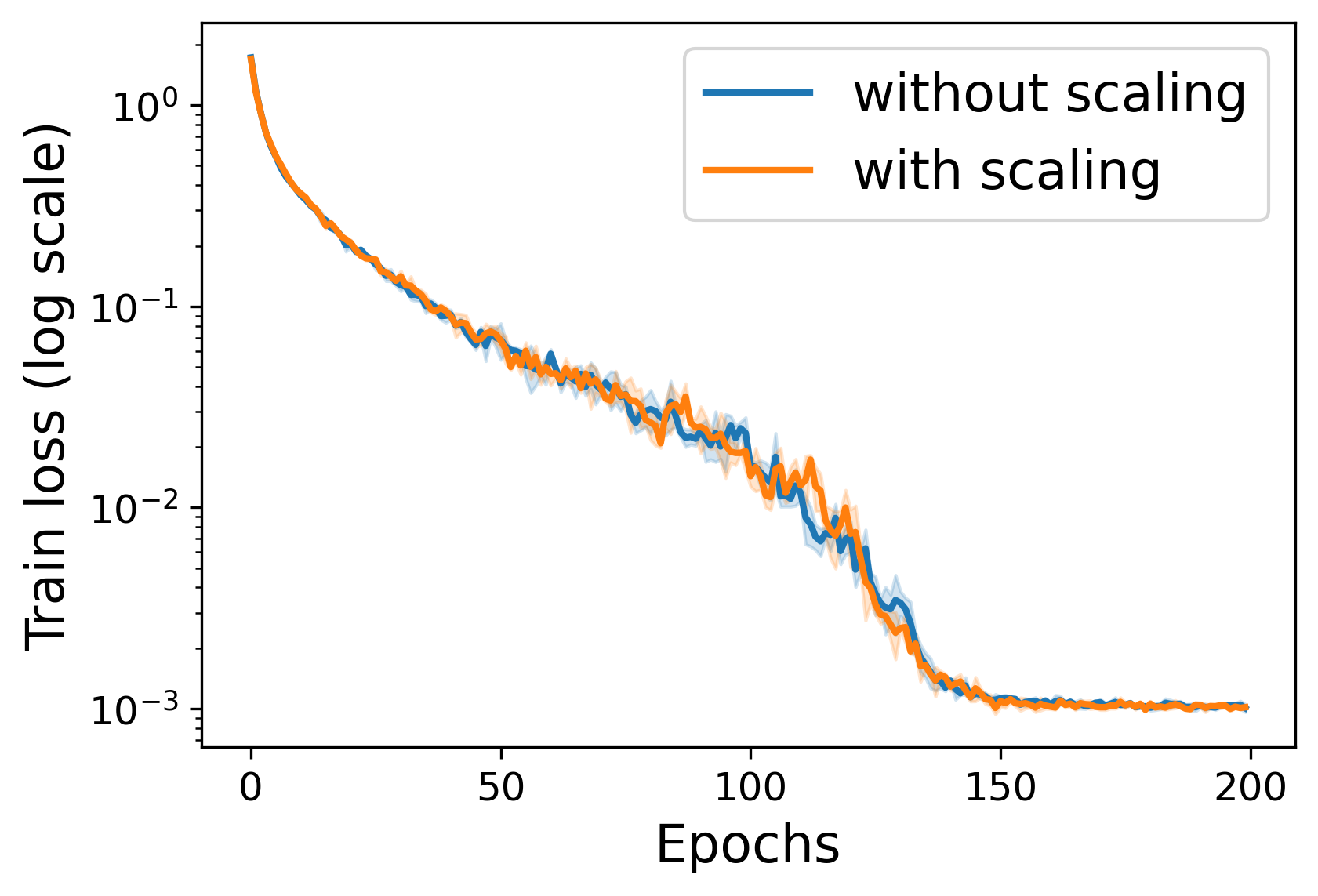Convergence rates of stochastic gradient method with independent sequences of step-size and momentum weight

0
⛏️
Sign in to get full access
This summary was produced with help from an AI and may contain inaccuracies - check out the links to read the original source documents!
Related Papers
⛏️

0
Convergence rates of stochastic gradient method with independent sequences of step-size and momentum weight
Wen-Liang Hwang
In large-scale learning algorithms, the momentum term is usually included in the stochastic sub-gradient method to improve the learning speed because it can navigate ravines efficiently to reach a local minimum. However, step-size and momentum weight hyper-parameters must be appropriately tuned to optimize convergence. We thus analyze the convergence rate using stochastic programming with Polyak's acceleration of two commonly used step-size learning rates: ``diminishing-to-zero and ``constant-and-drop (where the sequence is divided into stages and a constant step-size is applied at each stage) under strongly convex functions over a compact convex set with bounded sub-gradients. For the former, we show that the convergence rate can be written as a product of exponential in step-size and polynomial in momentum weight. Our analysis justifies the convergence of using the default momentum weight setting and the diminishing-to-zero step-size sequence in large-scale machine learning software. For the latter, we present the condition for the momentum weight sequence to converge at each stage.
Read more8/7/2024


0
Stochastic Polyak Step-sizes and Momentum: Convergence Guarantees and Practical Performance
Dimitris Oikonomou, Nicolas Loizou
Stochastic gradient descent with momentum, also known as Stochastic Heavy Ball method (SHB), is one of the most popular algorithms for solving large-scale stochastic optimization problems in various machine learning tasks. In practical scenarios, tuning the step-size and momentum parameters of the method is a prohibitively expensive and time-consuming process. In this work, inspired by the recent advantages of stochastic Polyak step-size in the performance of stochastic gradient descent (SGD), we propose and explore new Polyak-type variants suitable for the update rule of the SHB method. In particular, using the Iterate Moving Average (IMA) viewpoint of SHB, we propose and analyze three novel step-size selections: MomSPS$_{max}$, MomDecSPS, and MomAdaSPS. For MomSPS$_{max}$, we provide convergence guarantees for SHB to a neighborhood of the solution for convex and smooth problems (without assuming interpolation). If interpolation is also satisfied, then using MomSPS$_{max}$, SHB converges to the true solution at a fast rate matching the deterministic HB. The other two variants, MomDecSPS and MomAdaSPS, are the first adaptive step-sizes for SHB that guarantee convergence to the exact minimizer without prior knowledge of the problem parameters and without assuming interpolation. The convergence analysis of SHB is tight and obtains the convergence guarantees of SGD with stochastic Polyak step-sizes as a special case. We supplement our analysis with experiments that validate the theory and demonstrate the effectiveness and robustness of the new algorithms.
Read more6/7/2024


0
Random Scaling and Momentum for Non-smooth Non-convex Optimization
Qinzi Zhang, Ashok Cutkosky
Training neural networks requires optimizing a loss function that may be highly irregular, and in particular neither convex nor smooth. Popular training algorithms are based on stochastic gradient descent with momentum (SGDM), for which classical analysis applies only if the loss is either convex or smooth. We show that a very small modification to SGDM closes this gap: simply scale the update at each time point by an exponentially distributed random scalar. The resulting algorithm achieves optimal convergence guarantees. Intriguingly, this result is not derived by a specific analysis of SGDM: instead, it falls naturally out of a more general framework for converting online convex optimization algorithms to non-convex optimization algorithms.
Read more5/17/2024
⛏️

0
On the Convergence of Gradient Descent for Large Learning Rates
Alexandru Cru{a}ciun, Debarghya Ghoshdastidar
A vast literature on convergence guarantees for gradient descent and derived methods exists at the moment. However, a simple practical situation remains unexplored: when a fixed step size is used, can we expect gradient descent to converge starting from any initialization? We provide fundamental impossibility results showing that convergence becomes impossible no matter the initialization if the step size gets too big. Looking at the asymptotic value of the gradient norm along the optimization trajectory, we see that there is a phase transition as the step size crosses a critical value. This has been observed by practitioners, yet the true mechanisms through which this happens remain unclear beyond heuristics. Using results from dynamical systems theory, we provide a proof of this in the case of linear neural networks with a squared loss. We also prove the impossibility of convergence for more general losses without requiring strong assumptions such as Lipschitz continuity for the gradient. We validate our findings through experiments with non-linear networks.
Read more9/4/2024